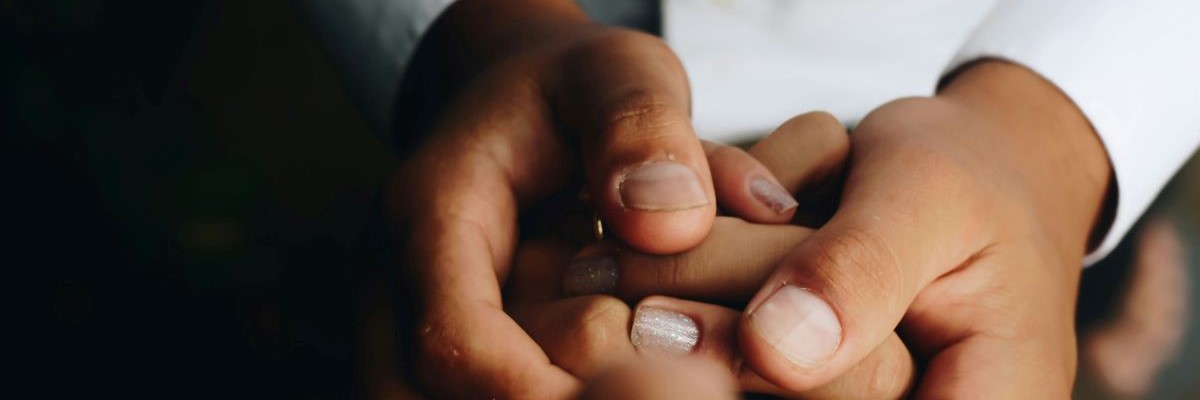12 December 2024 | News
At Support After Suicide Partnership (SASP), we work with our members to identify areas where new or additional guidance for suicide bereavement services is needed. This ensures we work towards our mission: that everyone bereaved by suicide is offered timely and appropriate support.
One such area is how to best support people who have suffered a bereavement by suicide and are affected by gambling harms.
We know that gambling harms affect many people, and there is clear evidence to suggest links with suicidality. In recent years, concerns about gambling harms as a public health issue have been increasing.
The impact of gambling harms on an individual, as well as their family and friends, can be substantial. But gambling harms are often hidden because of shame, stigma and misunderstandings that surround them.
Our new guide is for all those working with people bereaved by suicide. It is crucial that we are all aware of what gambling harms are, how to spot the signs that someone is experiencing them, and how to support people affected.
It’s been written by SASP alongside specialist organisations, academics and people with lived experience of gambling harms.
What do we mean by gambling harms?
The UK has one of the biggest gambling markets in the world, worth £15.1 billion as of March 2023. The Gambling Commission estimates that 48% of adults will have gambled in the past four weeks (period covered: January to April 2024). It is thought that around 2.5% of the population are suffering ‘problem gambling’, and 14.5% are ‘gambling at elevated risks’.
The risks and harms from gambling are much higher for younger people with 9.1% of 18 to 24-year olds who gamble suffering problem gambling with nearly 40% ‘gambling at elevated risk’. This is likely to be because of their increased vulnerability at a younger age, but also because higher proportions of younger people play the most addictive forms of gambling.
Legal forms of gambling include casinos, betting, lotteries, bingo, scratchcards, online (or remote) gambling, and more. Research has shown that harmful gambling is linked to high participation in online gambling, casino and bingo games, electronic gambling machines in bookmakers and sports/event betting, amongst other gambling forms. The GSGB showed that the proportion of people suffering ‘problem gambling’ was over 9 times higher for those betting in person on non-sports events, and more than 6 times higher for those who had used online slots.
Gambling disorder is a mental health condition recognised in the diagnostic classification system, DSM-5. You can find a list of symptoms of gambling disorder here. In recent years, concerns about gambling harms as a public health issue have been increasing.
A wide range of harms are associated with problem gambling. These can be substantial and include:
- financial problems
- damage to relationships
- health or psychological distress
- adverse effects on work and education.1
Research also suggests that there are links between gambling and intimate partner/family violence and abuse 2, substance use (such as alcohol and drug use) and mental health issues such as depression and anxiety.3
Gambling harms can also include those experienced by someone as a result of a loved one’s gambling. In 2020, it was estimated that around 7% of the population of Great Britain (adults and children) were negatively affected by someone else’s gambling.4 In this guide we will refer to those who are affected by another’s gambling behaviour as ‘affected others’.
Research shows that around half of affected others, are severely impacted by gambling harms.5 Such emotional and psychological harms experienced include distress, anger, shame, hopelessness, insecurity or vulnerability, depression, anxiety, and problems sleeping. One study showed that 16% of family members impacted by another’s gambling behaviour reported self-harm and suicidality.6 This is a very important consideration when working with those bereaved by suicide, given that they are already at increased risk of attempting suicide.
Affected others are more likely to be family members, particularly partners, as well as parents, siblings and children. Affected others may also be friends and colleagues.
What does good support look like?
The following service-wide considerations are relevant to any service working with people bereaved by suicide.
1. Be informed on gambling harms across your service to foster an understanding and enabling environment. Make sure that everyone is educated about the forms that gambling can take and the harms that it can cause. Sometimes a lack of awareness of the impact and harm that gambling can cause means that gambling is not taken seriously enough. It can also result in staff being reluctant to ask about something they may not understand.
2. Create a safe environment and embed a culture of trust. The stigma and shame that exists around gambling may mean that a service user has told no one about it before. People are more likely to open up if they are doing so in a safe and non-judgemental environment.
Check the needs of neurodiverse and culturally diverse groups before planning your approach, and avoid making assumptions about people’s sexuality or gender. Make use of guidance to ensure you offer appropriate help and support where needed. You can find links to the support guides and research we have published in the resources section of the guide itself.
3. Ensure gambling is framed as a public health issue rather than an individual one. It is important to discuss gambling harms as a complex issue, rather than as a result of flaws within people.
4. Ask about gambling harms at the point of access and as part of any risk assessments undertaken. Ensure this is considered within treatment plans where relevant. It is better to make the assumption that gambling could be involved than assume it could not.
For further information and guidance, visit the full version of the guide.

